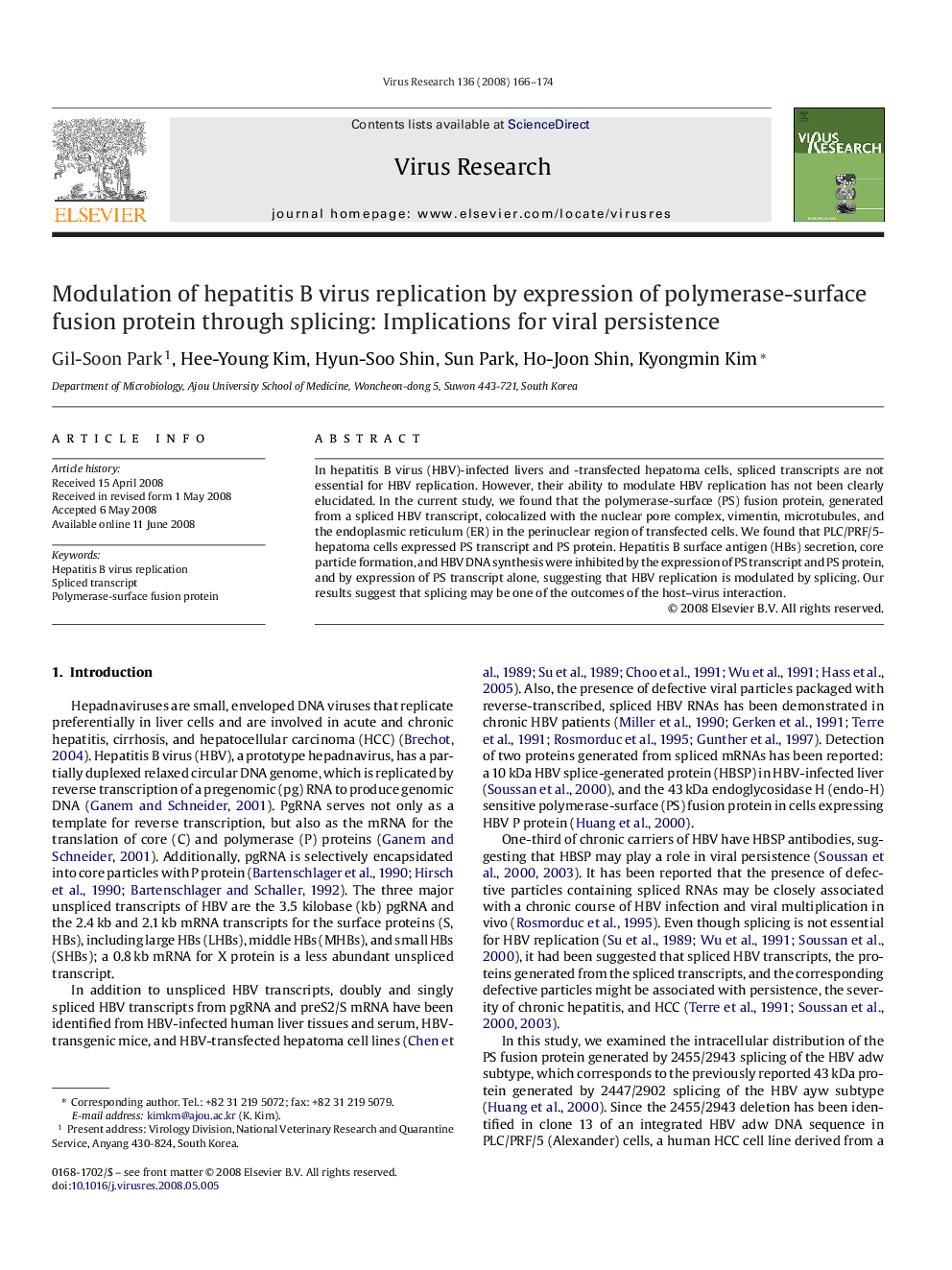| Article ID | Journal | Published Year | Pages | File Type |
|---|---|---|---|---|
| 3430477 | Virus Research | 2008 | 9 Pages |
In hepatitis B virus (HBV)-infected livers and -transfected hepatoma cells, spliced transcripts are not essential for HBV replication. However, their ability to modulate HBV replication has not been clearly elucidated. In the current study, we found that the polymerase-surface (PS) fusion protein, generated from a spliced HBV transcript, colocalized with the nuclear pore complex, vimentin, microtubules, and the endoplasmic reticulum (ER) in the perinuclear region of transfected cells. We found that PLC/PRF/5-hepatoma cells expressed PS transcript and PS protein. Hepatitis B surface antigen (HBs) secretion, core particle formation, and HBV DNA synthesis were inhibited by the expression of PS transcript and PS protein, and by expression of PS transcript alone, suggesting that HBV replication is modulated by splicing. Our results suggest that splicing may be one of the outcomes of the host–virus interaction.
